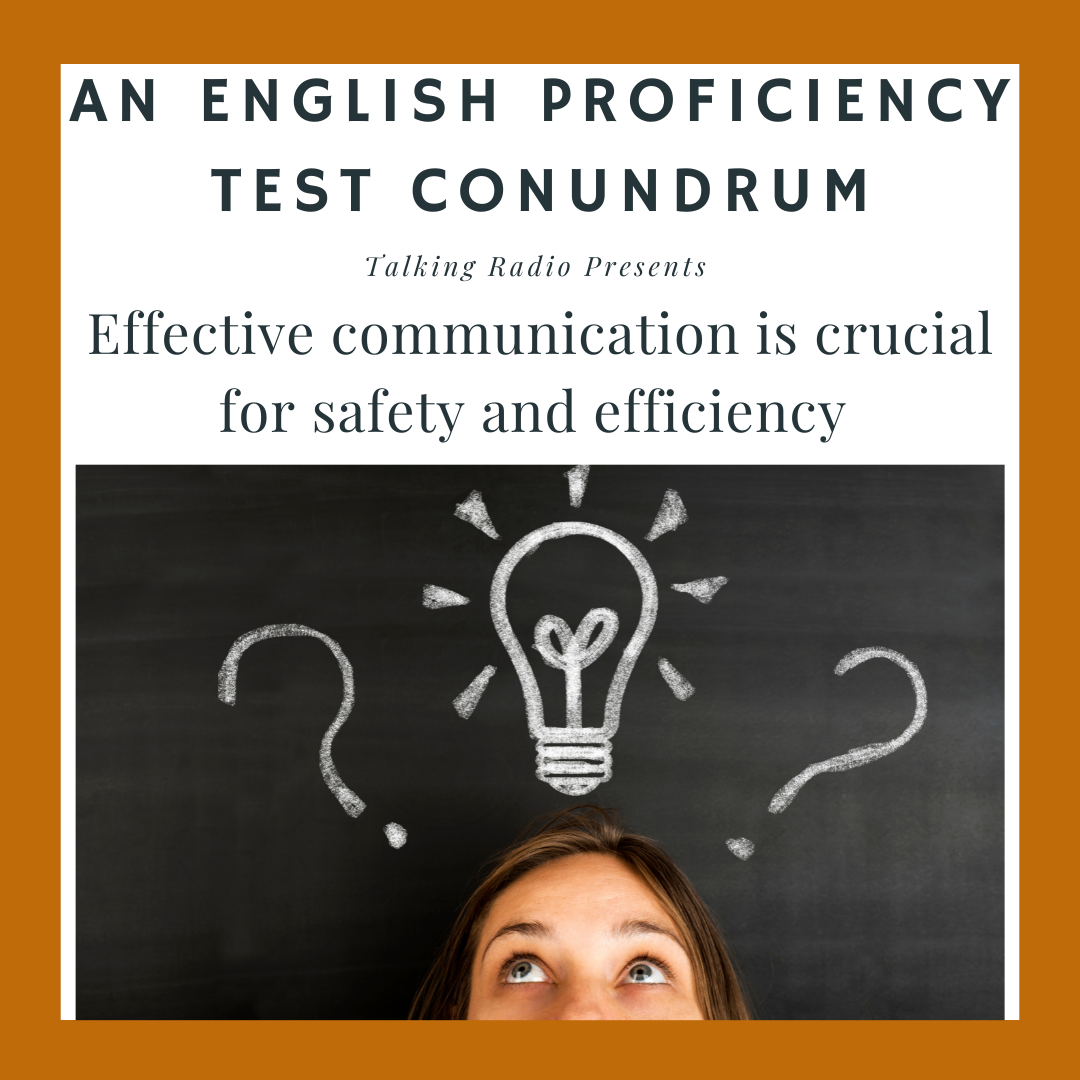
An English Proficiency Test conundrum
Dylan KemloEffective communication is crucial for safety and efficiency. Although there is no single standard language spoken universally, English is considered to be preferential as a means of communication due to its widespread use in international business, science, technology, aviation, maritime and technology. Achieving the necessary “English Language Proficiency” is therefore essential, and this blog is to help you differentiate which one of the three is right for you! International English Language Testing System (IELTS), the Test of English as a Foreign Language (TOEFL), and the English Language Proficiency (ELP) tests specifically for aviation.
IELTS: International English Language Testing System
IELTS is one of the most popular English language proficiency tests worldwide, used for academic, immigration, and professional purposes. It assesses the four key language skills:
· Listening: 30 minutes, 4 sections with 40 questions.
· Reading: 60 minutes, 3 sections with 40 questions.
· Writing: 60 minutes, 2 tasks (an essay and a report/letter).
· Speaking: 11-14 minutes, face-to-face interview with an examiner.
IELTS is suitable for general English proficiency assessment and is widely accepted by universities, employers, and immigration authorities.
TOEFL: Test of English as a Foreign Language
TOEFL is another globally recognized English language test, primarily used for academic purposes. It evaluates the ability to use and understand English in a university setting.
· Reading: 60-80 minutes, 3-4 passages with 36-56 questions.
· Listening: 60-90 minutes, 4-6 lectures and 2-3 conversations with 34-51 questions.
· Speaking: 20 minutes, 6 tasks (2 independent and 4 integrated).
· Writing: 50 minutes, 2 tasks (an integrated task and an independent essay).
TOEFL is often preferred by academic institutions, especially in the United States, and is ideal for students and professionals pursuing further education.
ELP: English Language Proficiency Tests for Aviation
ELP tests are specifically designed for aviation professionals, such as pilots and air traffic controllers, to ensure they meet the International Civil Aviation Organization (ICAO) standards for English language proficiency.
· Listening: Understanding Air Traffic Control communications, weather briefings, and pilot instructions.
· Speaking: Responding to scenarios, engaging in conversations, and providing clear instructions.
· Reading: Interpreting aviation manuals, notices, and reports.
· Writing: Writing reports or filling out forms with clear and accurate information (if applicable).
ELP tests assess proficiency across six levels, with Level 4 (Operational) being the minimum standard required by ICAO. Levels range from 1 (Pre-elementary) to 6 (Expert). Anyone achieving a Level 6 in this instance will not be required to re-test in their lifetime.
ELP tests are essential for aviation professionals who must demonstrate their ability to communicate effectively in English to ensure safety and efficiency in international airspace. (This includes 2 way radio communications).
Key Differences Between IELTS, TOEFL, and ELP Tests
· Purpose: IELTS and TOEFL are general English proficiency tests used for a variety of purposes including academics and immigration, while ELP tests are specifically designed for aviation professionals.
· Content: IELTS and TOEFL cover a wide range of general English skills, whereas ELP tests focus on aviation-specific language and scenarios.
· Format: While all three tests assess listening, speaking, reading, and writing skills, the format and emphasis of tasks differ, with ELP tests including tasks tailored to aviation contexts.
· Scoring: IELTS and TOEFL use a numerical scoring system applicable across various fields, while ELP tests use proficiency levels specific to aviation requirements set by ICAO.
Choosing the right English Proficiency Test depends on your career goals and the requirements of the institution or organisation that you are applying to. Make sure you are familiar with the relevant English Test you are planning to undertake, particularly due to the fact that each one of these have been identified in this Blog with a very specific outcome. Let us know if you have any related queries by emailing karen@talkingradio.net